The PlastiCircle project conducted a Virtual Study Tour of the third and final pilot of the project, which is located in the Romanian city of Alba Iulia. The event took place online on 15 October, with 40 participants in attendance, including city authorities, waste managers, procurers, companies, and other plastic stakeholders.
Through the use of technology and satellite mapping, participants had the opportunity to virtually walk through the streets of Alba Iulia and see first-hand how the project is helping reduce plastic waste in the city.
Project coordinator César Aliaga kicked-off the event by reflecting on the problems associated with plastic in Europe and presenting an overview of the project. He mentioned that, currently, over 27 million tons of plastic are produced every year and only 31.1% of it is recycled, causing an economic impact of 11 billion EUR and an environmental impact which is equivalent to heating 1 million homes for 94 years.
“There are a lot of opportunities [to change this] in the following years. That is why, in PlastiCircle, we are trying to develop several technologies in the areas of collection, to collect more material and with better quality; transport, to be more efficient in transporting the material from the cities to recipient plants; also sorting, to separate materials by the type of polymer; and finally, recycling to develop new products out of it,” he said.
With a Google Earth presentation, César took the participants on a virtual tour over the two first pilot cities of Valencia (Spain), Utrecht (The Netherlands), and introduced Alba Iulia (Romania) as the last pilot city.
Following this, Julián Torralba, from Las Naves, introduced the citizen and stakeholders engagement activities that took place in Valencia, from recognising the area and organising workshops with citizens and stakeholders, to the process of tailoring the communication strategy to fit the population demographics of the selected districts.
“We noticed that the average age of the people was higher, so we couldn’t just rely on online communications, we were sure that we needed to be on the streets, so we were really active there with people informing and registering the participants in situ, to boost the participation of the people in the project,” he explained.
Representing the City of Alba Iulia, Valentin Voinica, the coordinator of the pilot, welcomed the participants to his city with satellite maps. He presented the two districts where the pilot takes place (Arnsberg and Goldis), the location of the smart containers, and the optimised transportation route for the collection and discard of the material.
Addressing the challenges posed by the pandemic, Voinica explained the changes needed to be made to the pilot in order to adapt it to the new reality . “We were supposed to start the pilot in April and had a strong collaboration with a social sciences faculty from the University, had meetings and events, online and offline registrations and so on. Unfortunately, in the beginning of March we entered in the emergency state and with the social distancing and the prohibition of workshops and meetings face-to-face, we were obliged to go mainly online,” he said.
Those interested in watching the session can find the recorded video on our YouTube channel: https://www.youtube.com/watch?v=3RlZuk1F79Y
